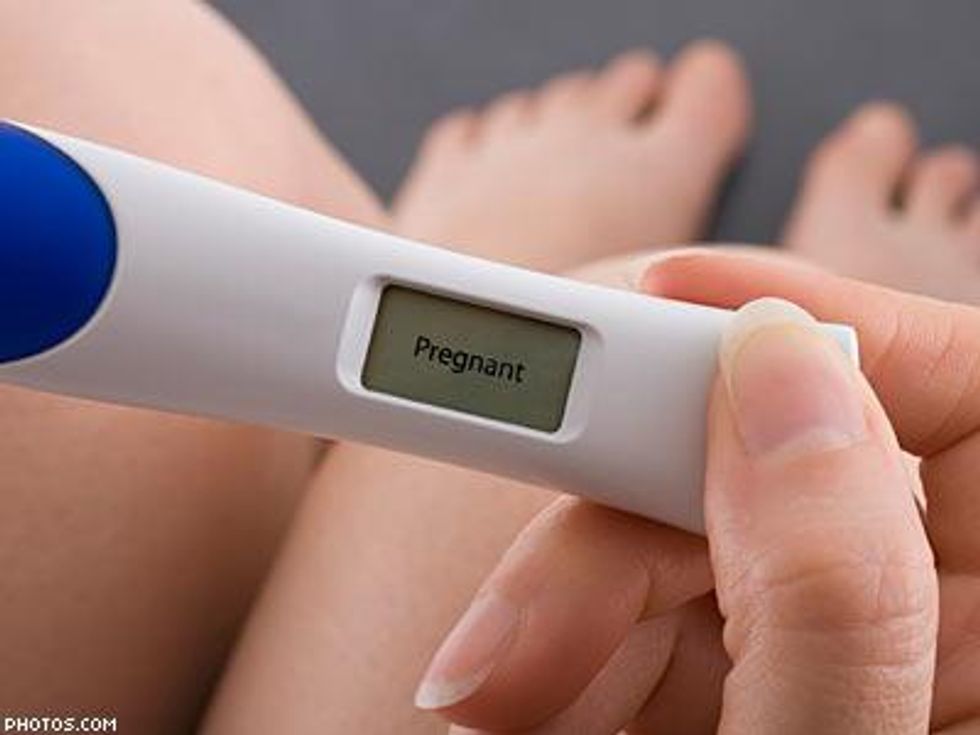With better
medication and keener understanding of the virus, people with HIV who want to be parents are finding ways to make it happen safely. With proper care, you can reduce the risk of transmitting HIV to your baby to less than 1 percent. Here is a road map for moms to-be.
Step One: Determine How You Want to Grow Your Family
If you’re an HIV-positive woman who wants to get pregnant, there are treatment regimens available that make it very unlikely you will pass HIV along to your child. If you have a male partner who is also HIV-positive, a procedure called sperm washing can literally wash the HIV from his sperm, making it safe to then inseminate you. It means utilizing a physician all along the way, which may not sound as romantic as Barry White and a bottle of Pinot Grigio, but it’s the safest and most reliable way to ensure everyone stays healthy while building a family.
Remember, adoption is always an option (even for single women and same-sex couples). While some adoption agencies are known to kick out prospective parents who have HIV, the Americans With Disabilities Act makes it illegal for adoption services to disqualify prospective adopters based solely on an HIV diagnosis. According to AIDS Beacon, agencies “are allowed to reject the applicant if other factors exist that determine the prospective parents are unqualified.” Several adoption providers, such as the Independent Adoption Center of Los Angeles, have placed children with HIV-positive individuals who’ve been rejected by other agencies, so it’s good to talk with several agencies, being open about your status, and find the one that’s the best fit.
For the purposes of this article, we’ll assume you want to have a baby the old-school way, by getting knocked up.
Step Two: Find Your Doctor Right
Ladies, you must find and consult with an obstetrician who specializes in HIV care and pre-conception counseling. General obstetricians often do not have the knowledge to properly care for an HIV-positive woman who is trying to conceive. Likewise, HIV specialists may not have much experience in gynecology or childbirth. Find someone who specializes in both and has worked with antiretroviral therapy to reduce mother-to-child transmission of HIV so you don’t have to spend time educating your doctors when it should be the other way around.
There are many well-known programs like the Johns Hopkins HIV Women’s Health Program, which has an obstetrical care program known as Halo, whose doctors are experienced in the use of HIV medications in pregnancy to treat you and to prevent you from transmitting HIV to your child. Moreover, they are prepared to deal with nursing case management, social services, support groups with other pregnant poz moms, and referrals to medical providers specializing in HIV management in infants after your child is born. Don’t assume that because a program is run out of a prestigious hospital or university that it is out of your reach financially; at Johns Hopkins, for example, no one is turned away for lack of funds.
Step Three: Conception Time
If you have a male partner who is also HIV-positive, you may be tempted to get pregnant the old-fashioned way: through unprotected sex. However, in doing so you risk reinfection or superinfection (where you get a second strain of HIV), even if both of you have a low or undetectable viral load. In either case, you may be reinfected with a more drug-resistant form of the virus.
HIV-positive men may opt for sperm scrubbing. Since HIV occupies the seminal fluid and not the sperm itself, the process essentially separates the sperm from the seminal fluid. The sperm is then deposited in the woman’s body by a physician using artificial insemination during a peak period of fertility.
If you have a husband, boyfriend, or baby daddy who is HIV-negative, you have a couple of options, including pre-exposure prophylaxis, or PrEP, a relatively new strategy in which the antiretroviral medication Truvada is given to the negative partner of an HIV-positive person to prevent transmission of the virus. There are no conclusive tests that show PrEP’s success rate in preventing infection during conception, however. But a Spanish study published in 2006 found that serodiscordant couples who had unprotected sex only during high-fertility days, were closely monitored by a doctor, and in which the positive partner took highly active antiretroviral treatment without fail and had consistently low viral loads were able to have a baby without transmitting HIV to the child. Talk to your obstetrician about what this means for you.
Also, talk to your doctor about costs. Pregnancy and delivery are expensive, and so is HIV treatment. But you may have more coverage under new Obamacare rules and you may be able to use Medicaid to help cover costs, depending on your state.
 Step Four: You’re Pregnant!
Step Four: You’re Pregnant!If you haven’t begun to do so already, you must start taking extra folic acid supplements, even if your prenatal vitamins include folic acid.
Talk to your doctor about all your supplements and which you should cut out or beef up. One you may need to cut down is vitamin A. Though some doctors recommend high doses of vitamin A for HIV-positive women, it could actually cause birth complications if you take more than the standard 5,000 milligrams per day.
If you aren’t on antiretrovirals already, see a doctor immediately, because you will need to take them during pregnancy. If you’re off them, you may not be able to restart the drugs safely until the second trimester—your doctor can determine that. But if you’re on them already, do not go off. Your doctor will make sure you’re on the safest medications, but it’s up to you to stay solid with your treatment regimen. Remember, with proper medication, your risk of passing HIV along to your child is less than 1 percent.
Step Five: You’re in Labor
If you’re far into your pregnancy, don’t panic. You can still get HIV treatment during labor and delivery. Tell the hospital staff immediately that you are HIV-positive so they can give you the treatment needed to prevent transmission to your baby. Your baby will be treated with antiretrovirals, and the doctor will most likely recommend you not breast-feed. An HIV-positive mother who is not being treated for her HIV during pregnancy, labor, or delivery has a 25 percent chance (1 in 4) of passing the virus to her baby.
According to the U.S. Department of Health and Human Services, when an HIV-positive mother receives antiretroviral drugs during pregnancy, labor, and delivery, has her baby by cesarean section, and avoids breast-feeding, the chance of passing on the infection falls to less than 2 percent (fewer than 2 in 100).
That doesn’t mean you must have a C-section, though, if you are already on highly active antiretroviral therapy (HAART). Once doctors discovered that HAART reduced the mother-to-child transmission rate by 70 percent, the need for cesarean births for HIV-positive mothers diminished. Whether you have vaginal or C-section birth will depend on your drug adherence and your viral load.
Either way, you’ll receive an IV drip of the anti-HIV medication AZT, which is a way to pre-load the baby with the drug to prevent transmission of HIV from your genital fluids or blood during labor and delivery.
Step Six: You Have a Bouncing Baby Boy or Girl
Remember, just as you have special needs during pregnancy, your baby will have some extra needs as well. After the baby is born, he or she will be treated with antiretrovirals immediately and then will be tested to ensure that there was no HIV transmission.
The HIV test for babies is different from the one done for adults and different from the at-home HIV test you can buy at the pharmacy. So don’t do this yourself; make sure your health care provider is administering the baby’s HIV test. Generally your doctor will test your baby three times between the ages of 14 days and 6 months. In 95 percent of cases, testing can show whether a baby has HIV by the time he or she is 3 months old.
A pediatrician may also prescribe a medication plan to cut the infant’s risk of HIV infection by 50 percent. Even if the baby is HIV-negative, she or he will still need long-term care, so make sure to get a referral to a pediatrician who is familiar with HIV care.
Normally, doctors recommend breast-feeding, but usually not for HIV-positive moms. If an HIV-positive woman does breast-feed, she puts her child at a 14 percent risk for transmission. Reliable formula, using clean water, is much better for your newborn.
Finally: Family Time
Remember, in all of this, it may be a bit more work having a baby when you’re HIV-positive, but the payoff of being a mom is the same. Enjoy it.
Additional contributions by Diane Anderson-Minshall

 Step Four: You’re Pregnant!
Step Four: You’re Pregnant!















































































